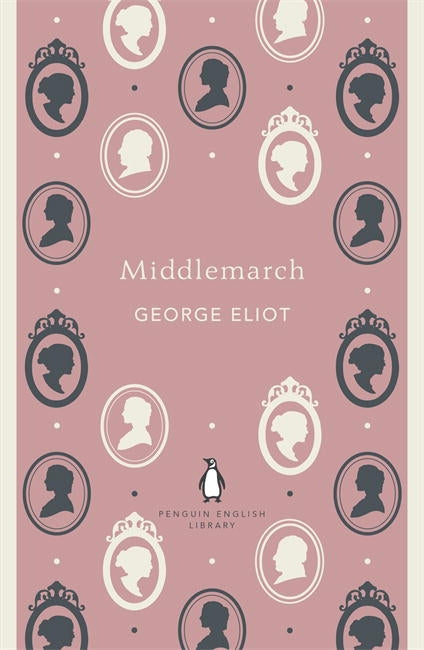George Eliot
Middlemarch
Middlemarch
Couldn't load pickup availability
Susan's Review
The modernist writer Virginia Woolf famously described George Eliot’s Middlemarch as “one of the few English novels written for grown-up people.” While there’s no recorded explanation for Woolf’s unexpected praise — it would be hard to find two novelists more different in mode and style — perhaps she was drawn to Eliot’s mature compassion for a range of deeply flawed characters, and to her understanding of the ways in which society often stifles youthful idealism. Perhaps Woolf admired Eliot’s mature ability to imagine characters radically different from the author of Middlemarch: a woman of commanding intellect and moral integrity who created convincing portraits of an arid, arrogant scholar; a cruel hypocrite; a young man whose dreams of social progress are undone by his attraction to a shallow, self-centred woman; and the contented wife and mother that Eliot would never become.
First published in eight volumes from 1871-2 and spanning the years 1829-1832, this magisterial novel focuses on four characters in a provincial town set in the wider context of political reform and burgeoning social progress. Dorothea Brooke is a wealthy, naïve young woman whose intense desire for knowledge leads her to make a disastrous marriage to the Reverend Edward Casaubon: an elderly, arrogant scholar pedantically obsessed with his work. Another central character is Tertius Lydgate; like Dorothea, Lydgate is an idealist, and like her, he makes a hollow marriage, in his case to the vacuous, vain, social-climbing Rosamond Vincy (the one character for whom Eliot has no sympathy; in fact, Eliot seems to actively despise her). The fourth main character in this quartet is Mary Garth; honest, hard-working and straightforward, she is arguably the novel’s steadfast moral centre in a world of egotism, self-deluding ambition, indolence and greed.
George Eliot, born Mary Ann Evans, adopted a male pseudonym because she rightly believed that women writers were not taken seriously. She was also a source of scandal in her personal life, choosing to live with a married man and father of three. George Henry Lewes, a philosopher and literary and theatre critic, was Eliot’s partner for 25 years until his death. The relationship was by all accounts both physically passionate and a meeting of minds; it also cost Eliot the regard of her siblings, who severed all contact with her. A new biography about Eliot’s life with Lewes, Clare Carlisle’s The Marriage Question, is now available in the Lane Bookshop. It makes for fascinating reading about Eliot’s personal life in the context of one of the most crucial social institutions of her time.
Publisher's Review
'She did not know then that it was Love who had come to her briefly as in a dream before awaking, with the hues of morning on his wings - that it was Love to whom she was sobbing her farewell as his image was banished by the blameless rigour of irresistible day'
George Eliot's most ambitious novel is a masterly evocation of diverse lives and changing fortunes in a provincial community. Peopling its landscape are Dorothea Brooke, a young idealist whose search for intellectual fulfillment leads her into a disastrous marriage to the pedantic scholar Casaubon; the charming but tactless Dr Lydgate, whose marriage to the spendthrift beauty Rosamund and pioneering medical methods threaten to undermine his career; and the religious hypocrite Bulstrode, hiding scandalous crimes from his past. As their stories interweave, George Eliot creates a richly nuanced and moving drama, hailed by Virginia Woolf as 'one of the few English novels written for adult people'.
Share


